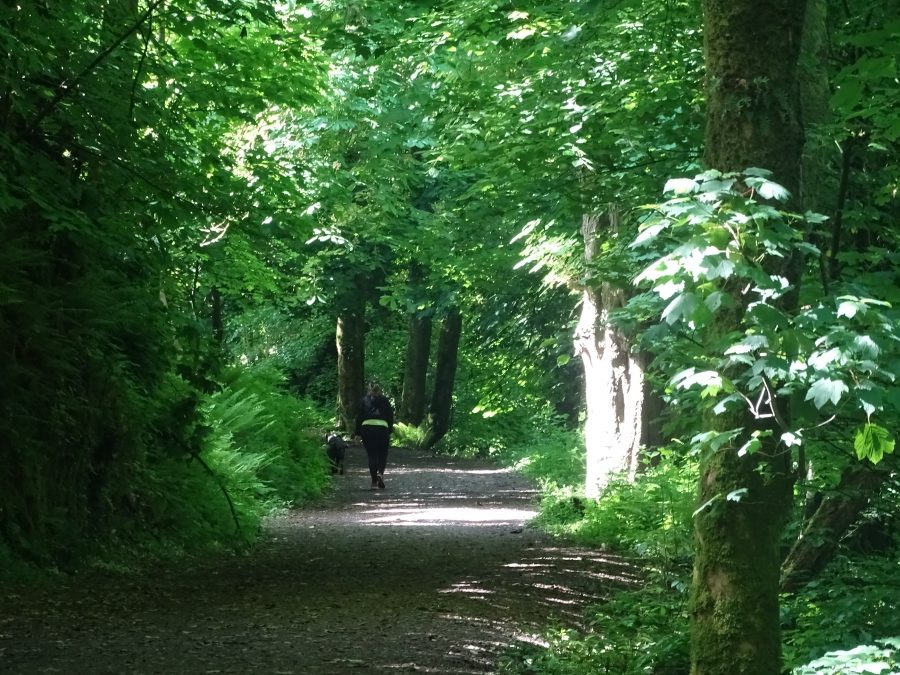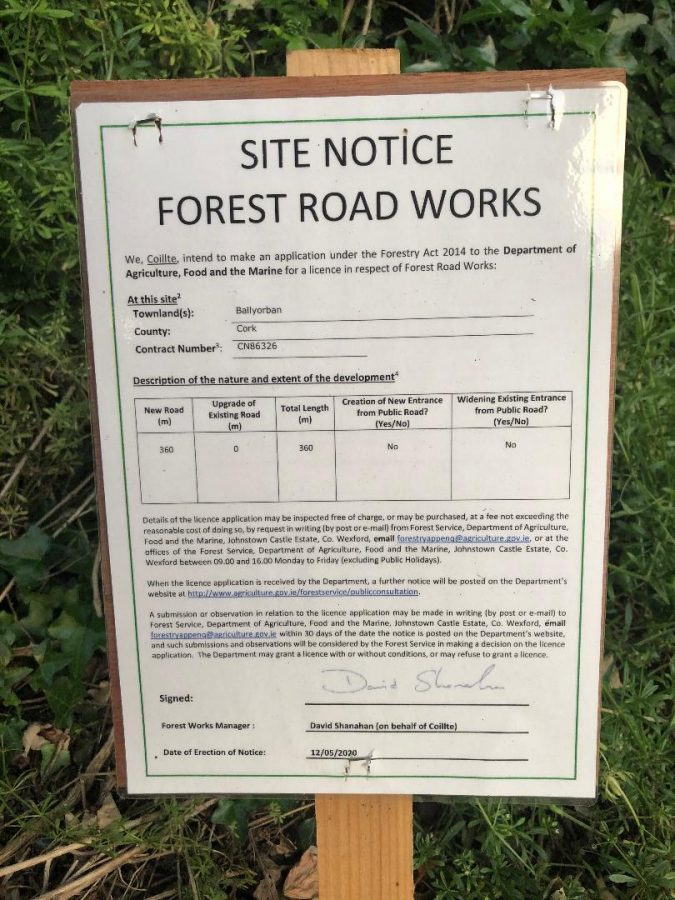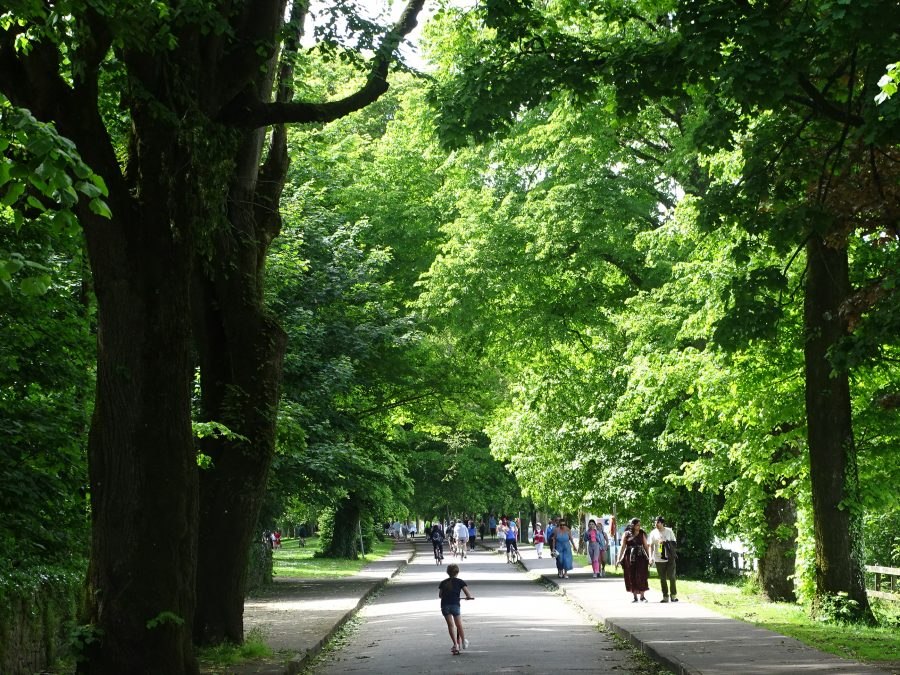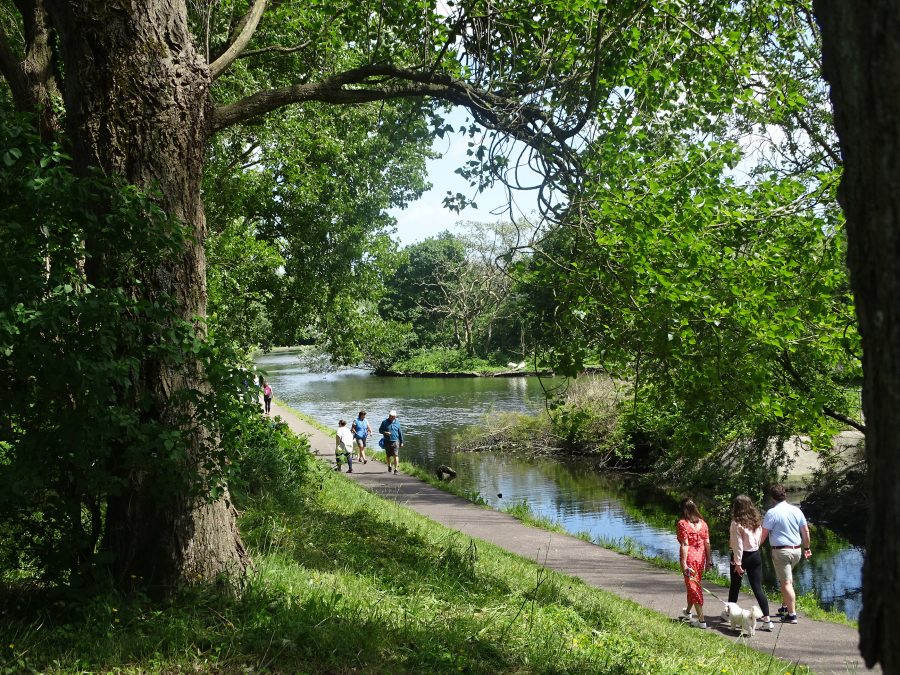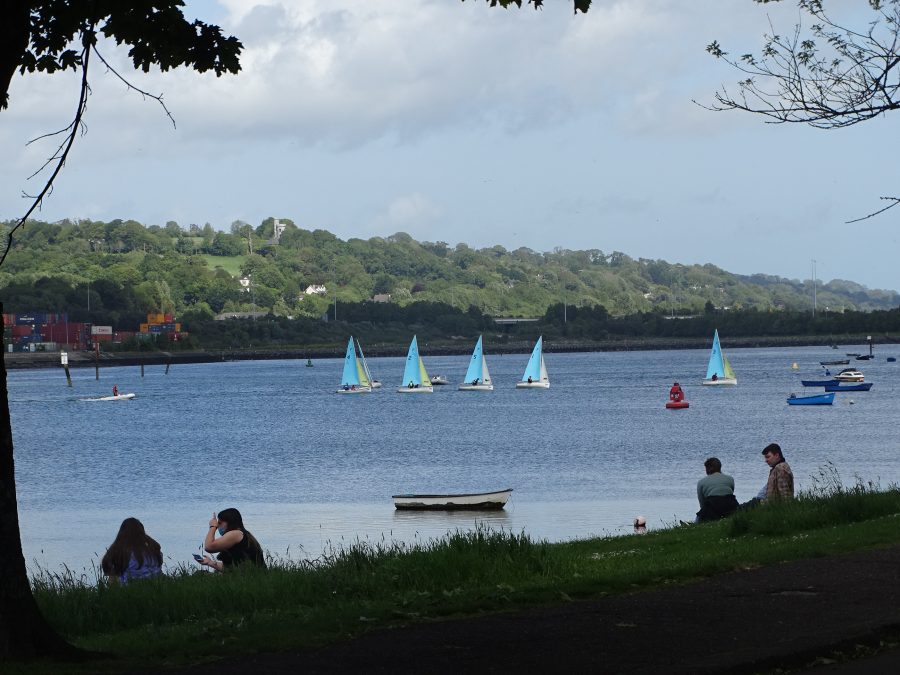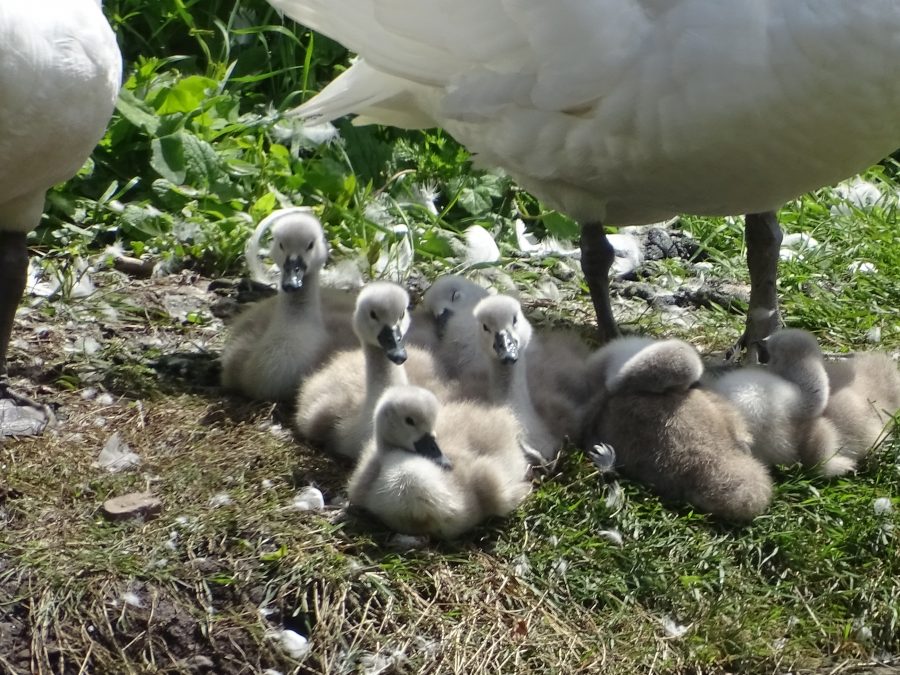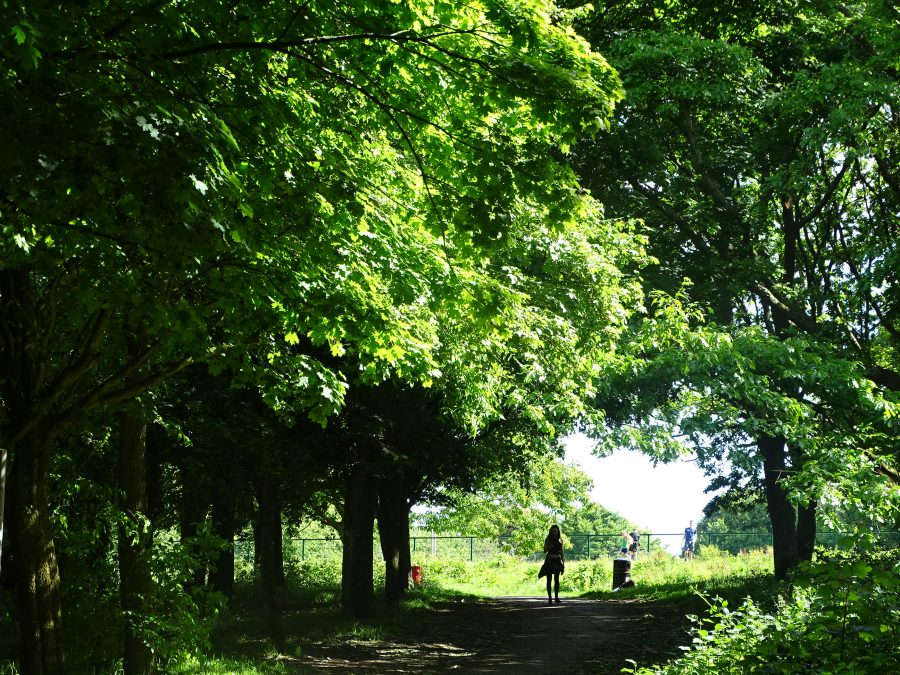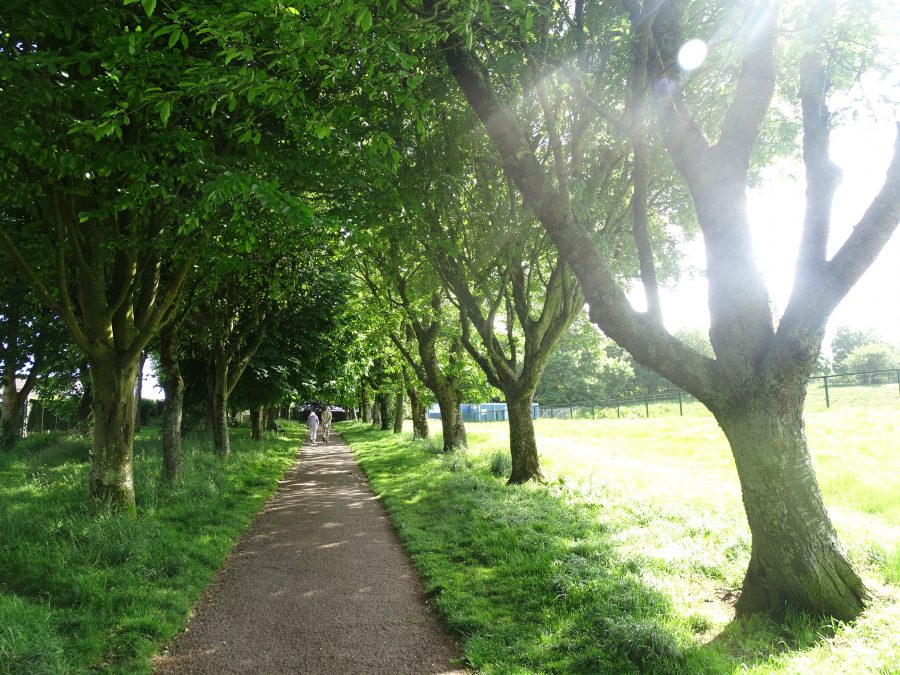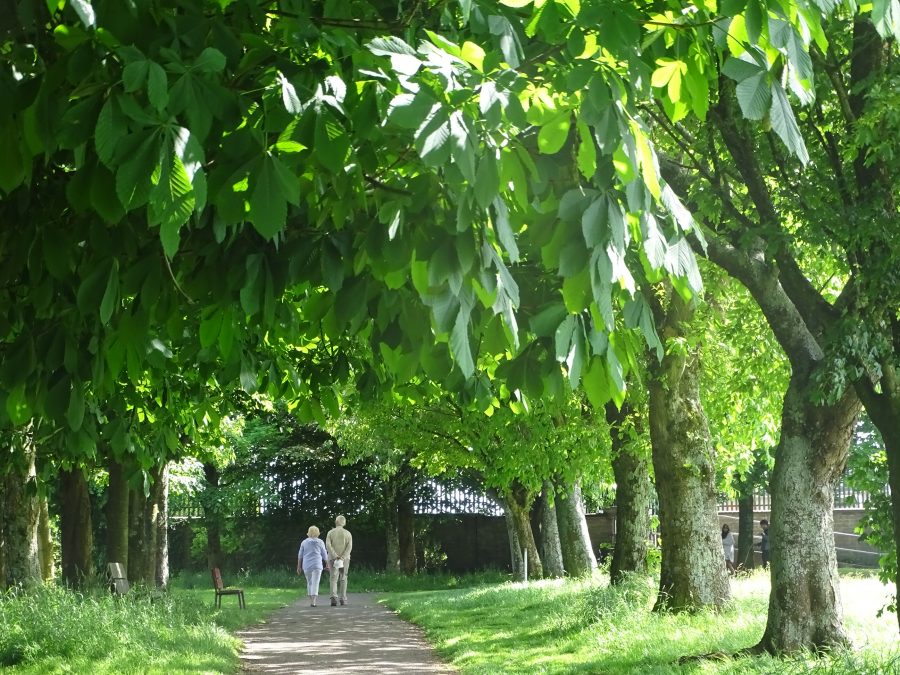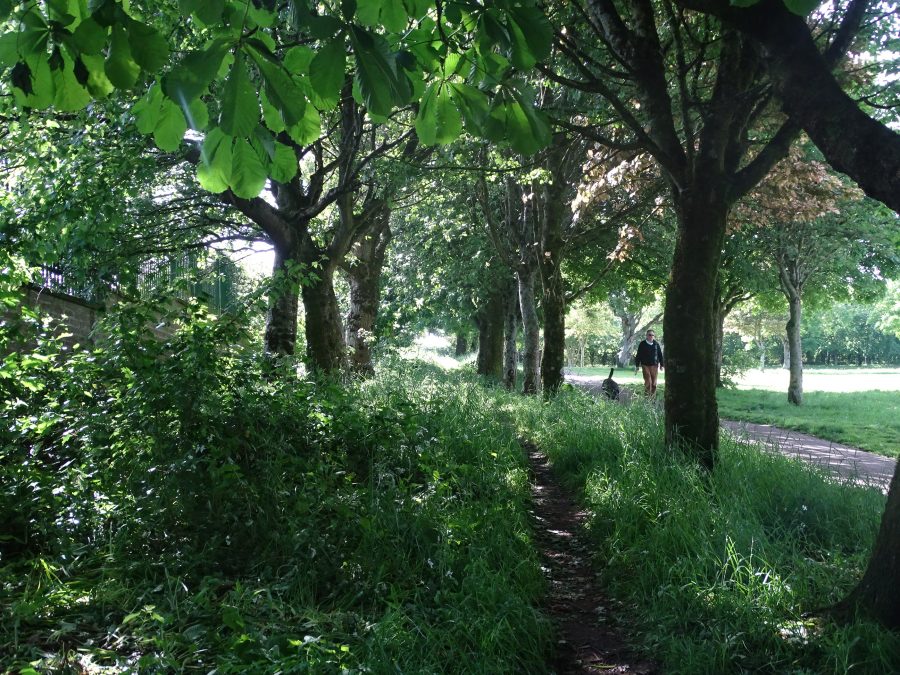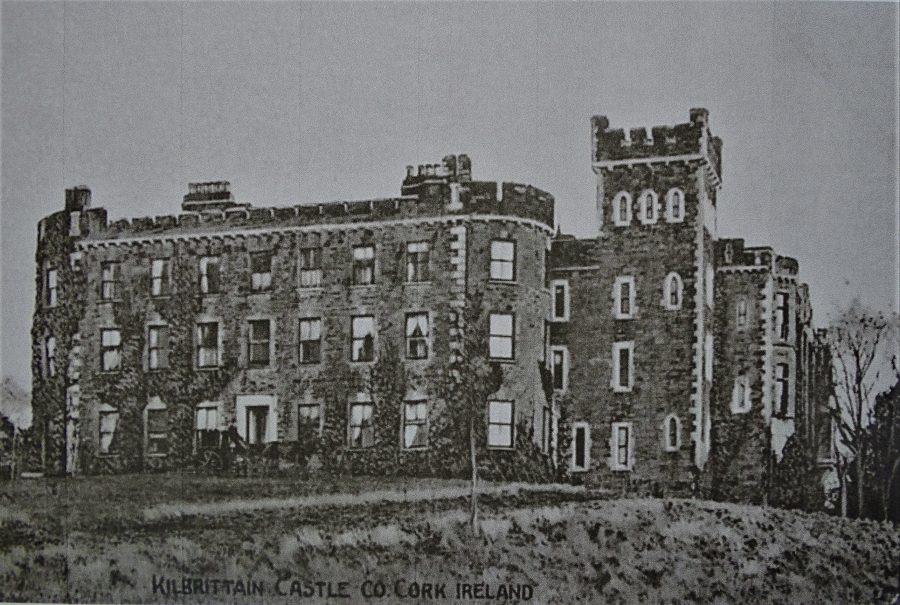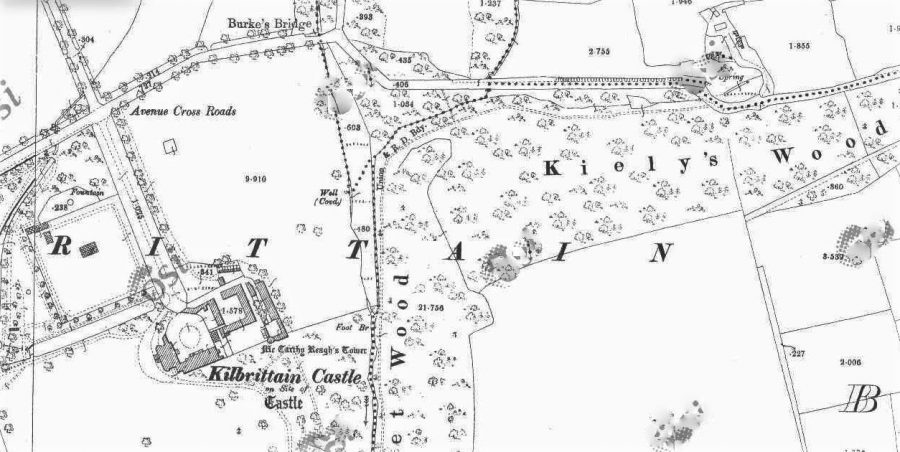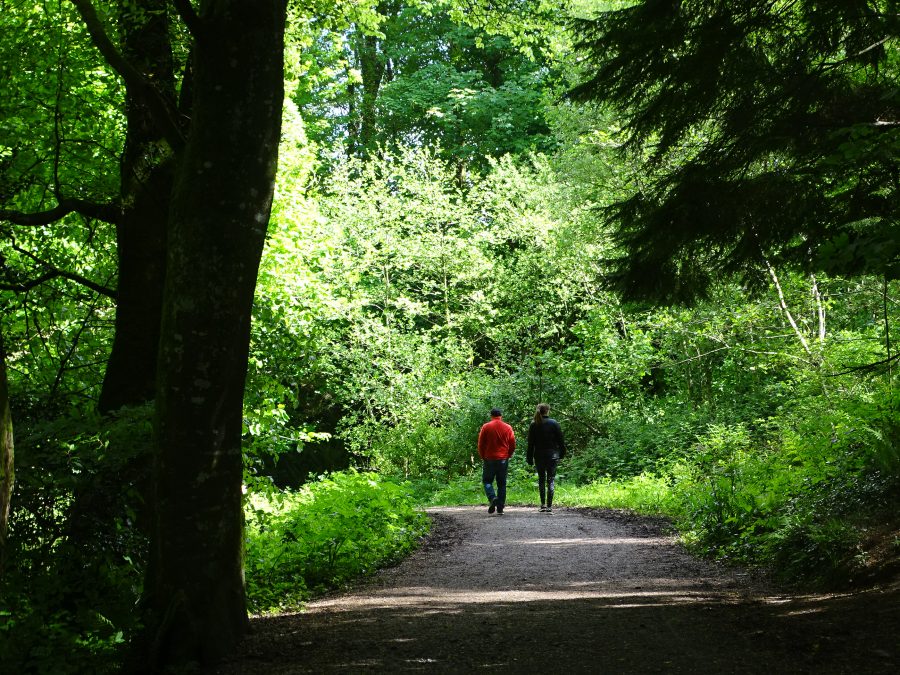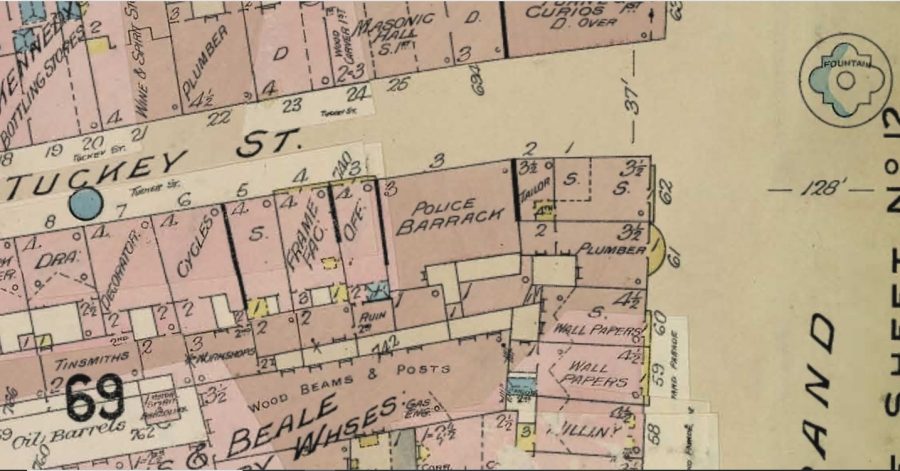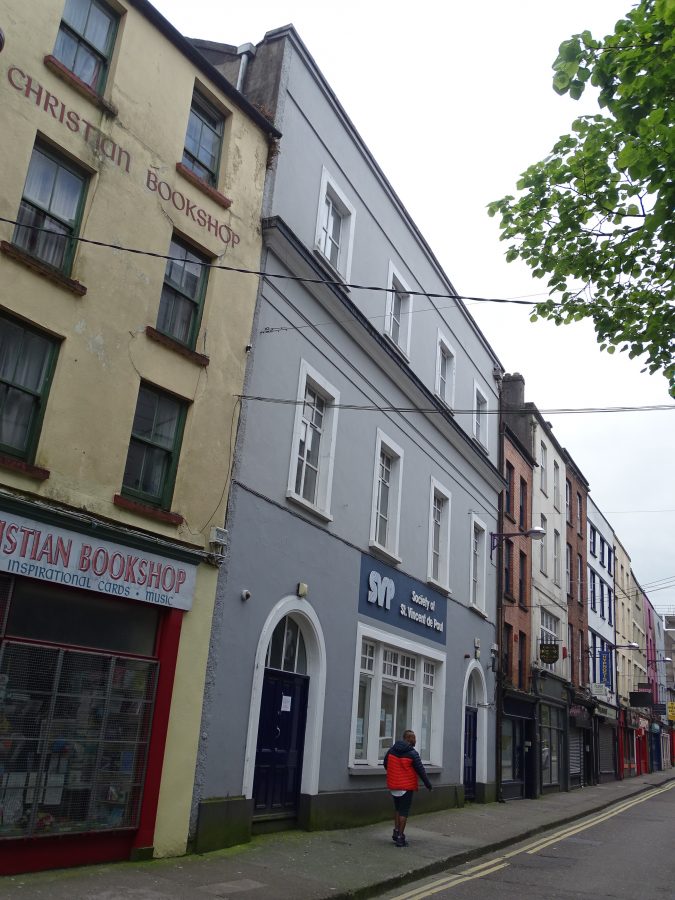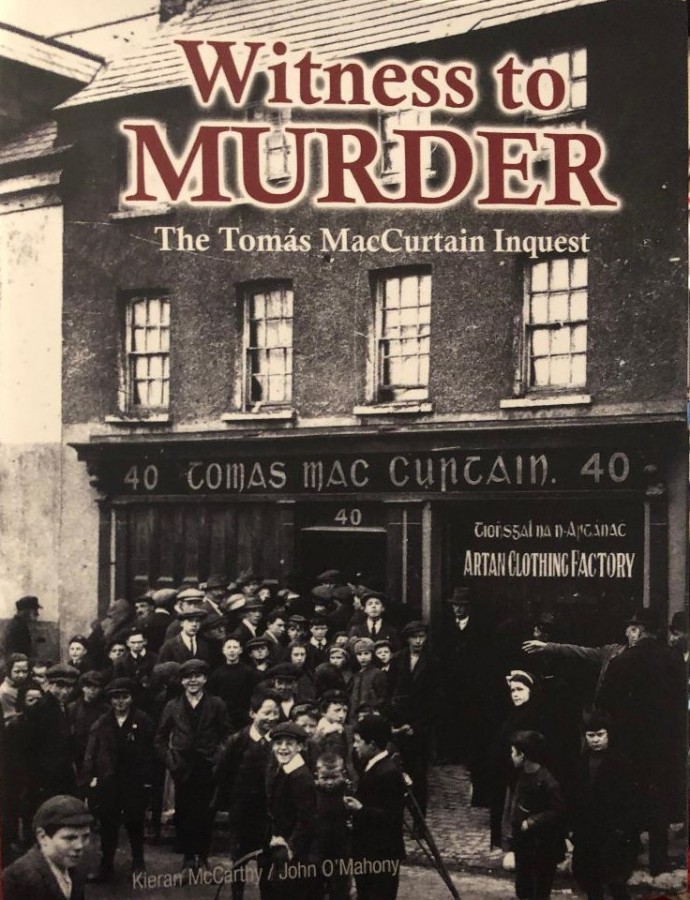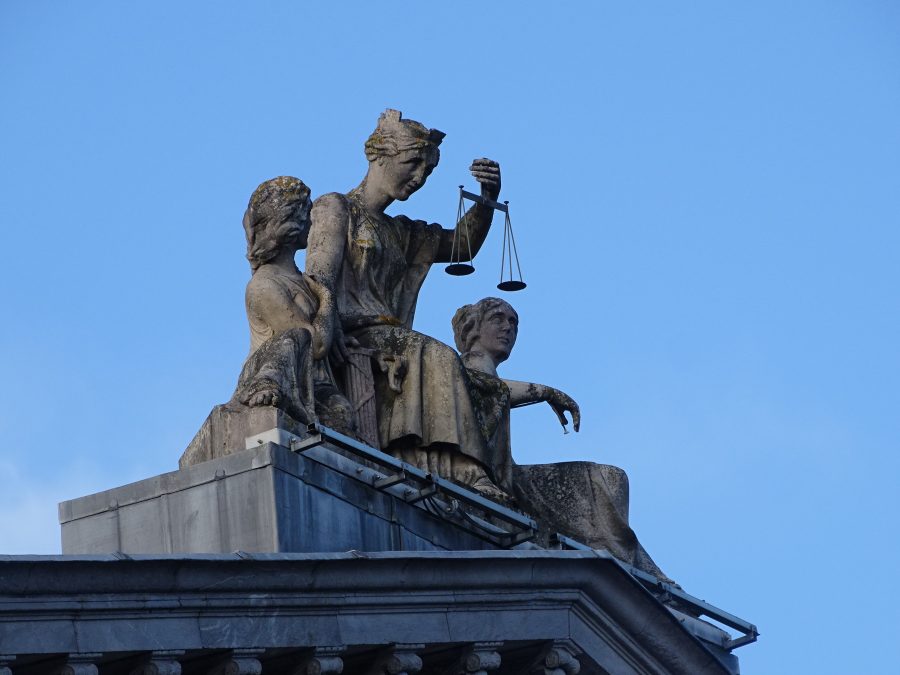
1051a. Scales of Justice atop Washington Street Courthouse being lit up by recent evening sunshine; the Cork City Republican Courts of the summer of 1920 took place in private houses in the nearby countryside of the city (picture: Kieran McCarthy).
Kieran’s Our City, Our Town Article,
Cork Independent, 4 June 2020
Remembering 1920: The Republican Courts
In 1920, as the War of Independence escalated, the formation Dáil Courts were seen as a contest to British rule. In May 1920, Dáil Éireann formally adopted the Courts and they were put under the Dáil’s Department of Agriculture, which connected to their initial function as a means of resolving land disputes. Omagh Barrister Kevin O’Shiel was put in charge of the Dáil Éireann Land Commission, an arbitration body set up mid-1920 to deal with land disputes. It proved quite successful at clamping down on cattle driving and land occupations. In May 1920, instructions were sent to all Sinn Féin branches to establish arbitration courts.
In June 1920, Republican authorities took the concept of the courts a step further, transferring the authority over the Courts to their Ministry for Home Affairs under Austin Stack. The Dáil Courts were now to be criminal and civil courts and professed to have the right to dispense law instead of the British courts.
Historian John Borgonovo in his article in the book Justice in Wartime and Revolutions (2012) outlines that during the summer of 1920, Dáil Éireann courts were established throughout the country. Courts were set up in each parish. There were also district courts, which dealt with cases referred to them by the parish courts or with the more serious eases. The courts dealt with all minor cases such as boundary disputes, assaults, and larceny. All decisions reached by courts were accepted by the litigants. Fines, where imposed, were collected by the Republican police force, which was also established.
On 19 June 1920 Sinn Féin announced in Irish newspapers that 84 arrests had been made by Volunteers between 3 June and 15 June. In addition, they detailed that 41 Republican Courts were held during that time across 24 counties. During the months of May to August, and indeed September in particular parts of the country, the Dáil Courts operated without interference from the British authorities. Judicial Commissioner of Dáil Éireann Land Courts, 1920-1922 Kevin R O’Sheil notes in his Bureau of Military Archives witness statement (WS1770) that the toleration appeared to have been designed; “The Dublin Castle people felt that if they held their hands and let the republican Courts function, the result would be chaos, in which the entire Sinn Fein and Republican movement would be embedded”.
In the Cork context, Lord Mayor MacSwiney were involved in the organisation of the Court as well as Councillors Donal O’Callaghan, Thomas Daly, Liam de Róiste, and Professor Alfred O’Rahilly. In the first week of June 1920 special activities were noticed around the Marsh and the centre of Cork City, from which about fifteen people were arrested on the charge of robbery and taken to a Republican makeshift prison, about ten miles from the city. Three of the prisoners were honourably acquitted after three days detention. The others pleaded guilty to the charges and confessed to the robberies.
The Cork Examiner on 11 June 1920 records that when the sworn depositions of the prisoners were taken at a private house in the countryside, they implicated six receivers, five of whom were business people. Six parties that purchased the stolen property were summoned to the court. Five of the accused were found guilty of knowingly purchasing stolen goods, and the others found guilty of unknowingly buying them. They were ordered to pay the full cost of the stolen goods, as well as a heavy fine.
The prosecutor (unnamed in the press) in charging the accused stated that the receivers were far more guilty than the prisoners, who were only young boys. He wished for the court to close up any business house found trading in a dishonest fashion, and that the owners be ordered to leave the district. In particular the prosecutor wished to direct the attention of the courts to the fact that all the prisoners practically (whose ages ranged from 14 to 18 years) detailed in their statements that the ‘Pictures’ or films were mainly responsible for their desire to steal. The prosecutor called upon the Corporation of Cork to take steps to prevent children attending pictures, except on specified nights, when as he noted “pictures tending to educate and to elevate the minds of the boys would be shown with the permission of the Corporation”.
A large quantity of the property stolen was recovered. This included seven or eight suits of clothes, shirts, overcoats, socks, collars, cuffs, etc, belonging to draper Mr P O’Sullivan, of Washington Street. Some coats, opera glasses, razors, and other small articles belonged to pawn broker Mr Kiely of South Main Street; a new bicycle, lyres, tube, tool-bag, etc., belonged to Mr O’Callaghan’s cycle shop on the Grand Parade. One bicycle belonged to the Republican Bicycle Shop on Liberty Street. A suit of clothes and shirts belonged to Mr Leader of North Main street with boots belonged to the Lee Boot Factory. A bicycle was recovered that was stolen from Yost Typewriting Office.
The fines imposed were to cover the cost of stolen petrol from Dwyer’s Engineer Stores on Gravel Lane, leather belonging to McMahon’s stores on Washington Street, boots from the Lee Boot Company, marmalade from Baker’s Stores on French Church Street, sugar from Byford’s Stores on St Patrick’s Street, sweets and matches from Punch’s Stores on Crosses Green, whiskey, wines taken from Wren’s Hotel on Winthrop Street, and some fur skins and a rug from Mr Rohu’s on the Grand Parade.
The Cork court sat for the greater part of three days. A large number of the public were present during the hearing. A woman acted as one of the judges [unnamed in the press] for the first time in the history of Cork. The court also emphasised the fact that the Republican Government meant to use all its forces to preserve peace and property, and issued strong warnings to those who were disposed to robbery, and that in future severe punishment will be meted out to those who are found guilty.
By the autumn of 1920, seeing more and more the undermining of the Crown’s law, the British authorities began suppressing the courts, or at least sought to stop them from meeting in public.
Caption:
1051a. Scales of Justice atop Washington Street Courthouse being lit up by recent evening sunshine; the Cork City Republican Courts of the summer of 1920 took place in private houses in the nearby countryside of the city (picture: Kieran McCarthy).
